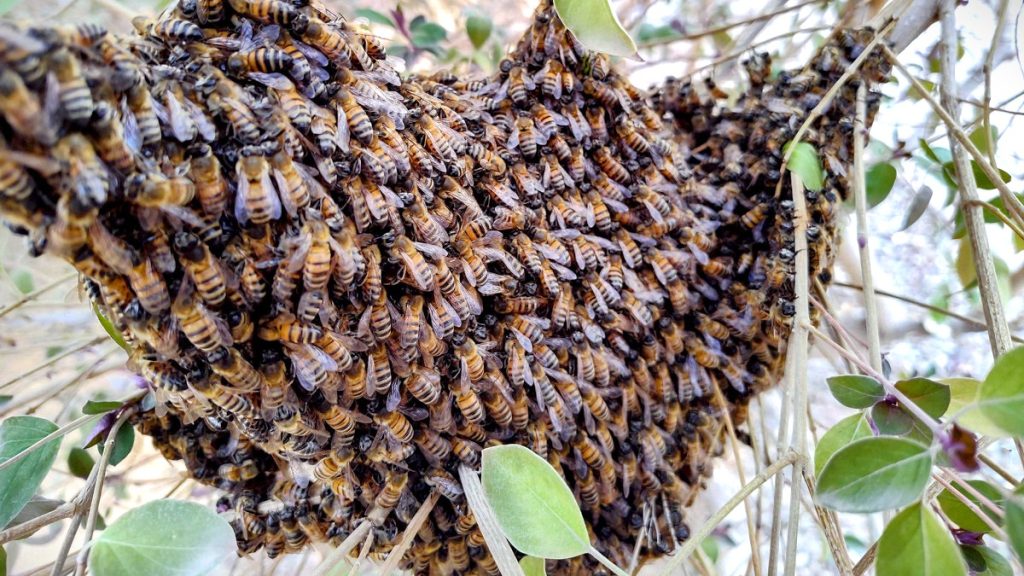Beehives can be beneficial to the environment. However, they can become a problem if bees build nests near homes in Phoenix. In general, these creatures are not aggressive, but their presence near people can raise some concerns. The warm weather in the area encourages bee activity year-round. This makes it essential to know when to call the best beehive control in Phoenix.
Bees pollinate flowers, fruits, and vegetables. Without them, many plants would struggle to grow. This can affect food production and biodiversity. In Phoenix, the desert landscape relies on these pollinators to support gardens, parks, and local farms.
Bees generally want to avoid people and only sting when they feel threatened. Most problems arise when bees build hives in places close to human activity, such as inside walls, under roofs, or near doorways. The risk of stings and allergic reactions increases, making beehive control necessary.
Safety Risks of Beehives Near Homes
Bees in Phoenix defend their hives aggressively if disturbed. Multiple bee stings can be dangerous. In some cases, stings can cause severe allergic reactions requiring emergency medical treatment. The risk of accidental encounters rises when beehives form near homes, schools, playgrounds, or businesses.
Preventing Property Damage
Bees sometimes build nests inside walls, attics, or crawl spaces. Their hive can grow here unnoticed for months. As the hive expands, honey and wax can cause stains, rot, or structural damage. In Phoenix’s dry climate, damage from moisture trapped by honey can weaken wood or insulation. Repairing these issues can be costly and time-consuming. Early control and removal of beehives prevent such damage.
Avoiding Infestations and Swarms
If a hive becomes overcrowded, the colony will split and send out swarms to find new homes. These swarms can alarm people even though they are usually harmless when moving. Swarms can cause panic or lead to people harming bees out of fear.
Why DIY Removal is Risky
Many homeowners in Phoenix may want to remove a beehive themselves. However, DIY removal is dangerous and can be ineffective. Bees are protective of their hives and can become aggressive during removal attempts. You risk multiple stings or worsening the infestation by disturbing the hive without proper knowledge and tools. Phoenix’s hot climate also makes bee activity more intense. This increases the chances of aggressive behavior if a hive is disturbed incorrectly. That’s why professional help is the safest and most effective option when dealing with an infestation.
Green Mango Pest Control specializes in safe and humane beehive control. Their experts identify the hive’s location and assess the situation. They use methods that protect people and bees. Many professionals focus on relocating hives rather than destroying bees, preserving their important role in the environment. They also inspect the area for damage and recommend repairs to prevent bees from returning.
Protecting the Environment While Controlling Bees
Responsible pest control balances the need to protect people while preserving bee populations. Bees face many threats worldwide, but their role is vital for healthy ecosystems. Mango Pest Control understands this balance. They often partner with local beekeepers to relocate hives safely, ensuring bees continue to thrive without putting people at risk.
The Importance of Ongoing Monitoring and Prevention
After a beehive has been removed or controlled, ongoing monitoring is crucial to prevent future infestations. Bees may try to rebuild in the same spot or nearby areas if conditions remain favorable. Regular inspections can help keep new colonies from settling in. Also, it is imperative to seal potential entry points and maintain your property. Green Mango Pest Control also offers follow-up visits and advice on making homes less attractive to bees.



